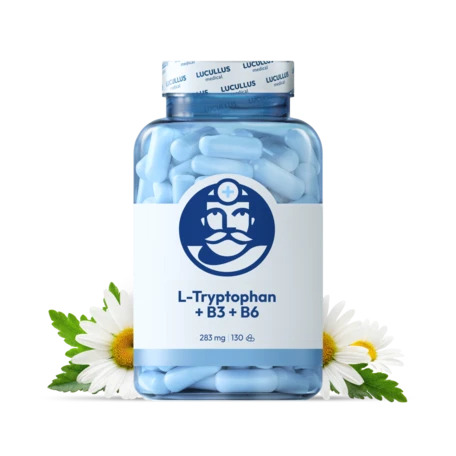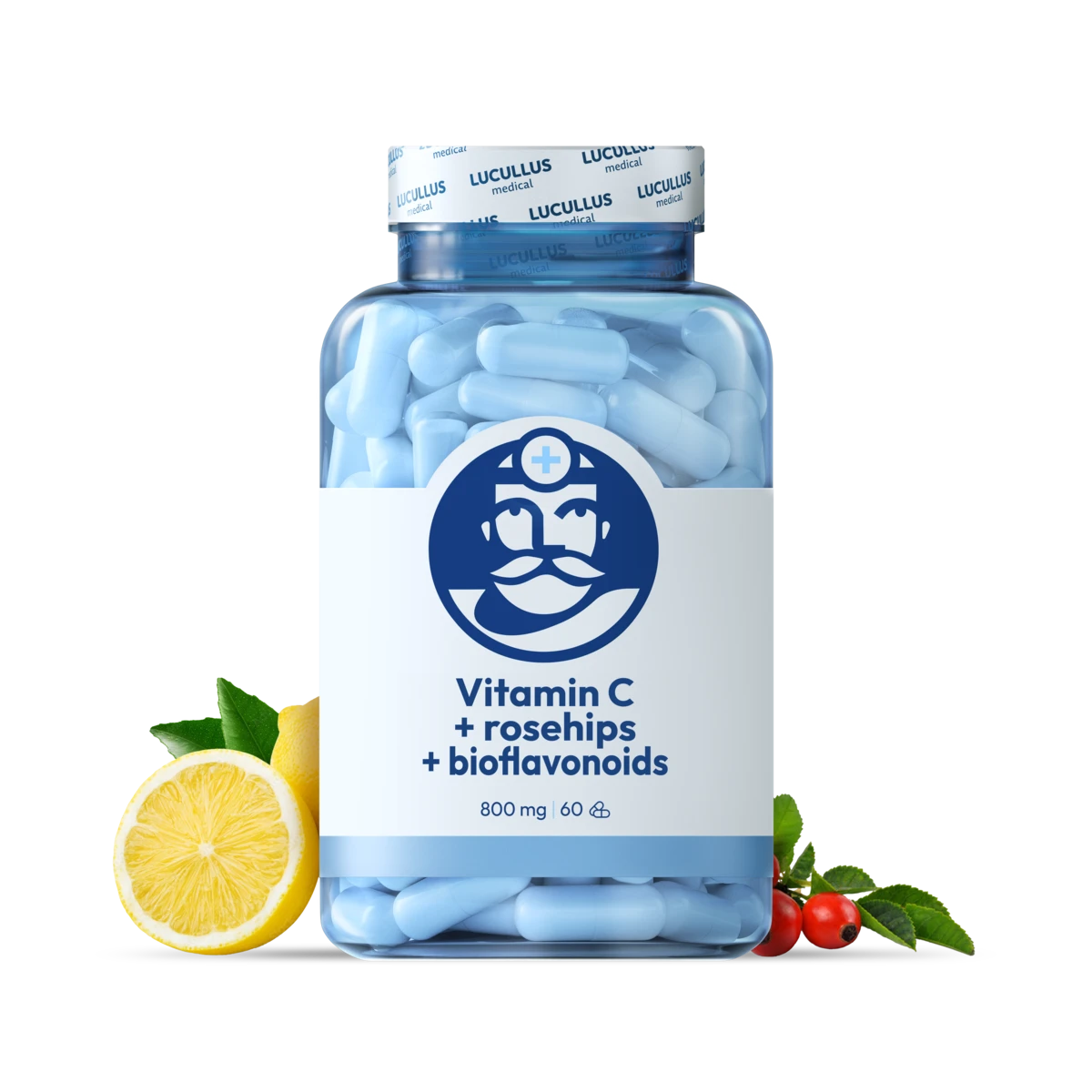
Vitamín C + šípky + bioflavonoidy
Navrhnutý špeciálne pre silnejšie antioxidačné účinky, lepšie vstrebávanie a využitie, kde je v hlavnej úlohe šípky prírodný zdroj vitamínu C . Vitamín C známy ako kyselina askorbová je živina nevyhnutná pre fungovanie nášho organizmu. Naše telo si syntetizuje túto kapustu, esenciálny vitamín, preto je potrebné ho prijať napríklad aj z ovocia a zeleniny, ako sú citrusy, paprika, chren, chren, paradajky.

Definujeme fakt: kĺbová výživa nielen pre tých, ktorých trápia kĺby
Preskúmajte spolu obsah tejto zdraviu prospešnej zmesi a akým spôsobom funguje. Zabezpečí lepšiu pohyblivosť, čo (zďaleka) nie je všetko. Joint Pro zlepšuje celý rad zdravotných špecifikácií vrátane zápalu, bolesti, odolnosti voči stresu a antioxidačnú kapacitu. Kĺbová výživa Dr. Lucullus je vytvorená pre prevenciu a najmä pre športovcov (znižuje oslabenie, zaťaženie), seniorov (rieši obmedzenú pohyblivosť- artritídu a artrózu), osoby po úrazoch (rýchla regenerácia), ľudí s nadváhou (posilnenie odolnosti kĺbov), mladistvých (úľava od stuhnutosti, podpora vývoja).

Common Lady's Mantle ... from the past to the present ...
originates from the Latin word " Alchemilla " related to alchemy. Alchemists believed in the miraculous power of water droplets on its leaves "heavenly water," (symbolized purity and nature's mystery), which were supposed to help them achieve eternal youth or transform a common metal into gold. They paid great attention to lady's mantle, which led not only to its naming but mainly to the discovery of its medicinal effects. The present relies on proven health benefits this medicinal plant offers.

Surprisingly Resilient Maca - Peruvian Cress
This remarkable plant (Lepidium mayenii) from the Peruvian Andes, where it is grown at extreme altitudes (4000 m a.s.l.). It is incredibly resilient and can survive and grow in conditions where most other plant species would not survive, such as low temperatures, strong winds, and intense UV radiation. Its ability to adapt to harsh environments enriches it with nutrients and substances that positively impact the human body, enhancing resistance to both physical and mental stress.

The First of Vitamins - B1
Maybe it's burnout ... that's the current description of the state when we feel different. When the coffee we loved no longer works and in the afternoon we are overwhelmed by unbearable fatigue, when in the evening we have no strength for anything, neither for sports nor for friends. And certainly not for another day at work. A nutritionist would describe this state with further findings of our diet with the words - „ You have a lack of thiamine (B1), which is essential for the proper functioning of the nervous system and the conversion of food into energy. Your diet is full of processed carbohydrates, but almost without B1. And when the body doesn't have enough thiamine, you can feel fatigue, forgetfulness, irritability, and even anxiety. And caffeine? It depletes thiamine in the body even more!“ We certainly wouldn't think that this state could be caused by a “triviality”. After all, many of us don't register thiamine, I admit it was also my case. This first of the discovered vitamins in 1912 was named by the Polish biochemist Funk with the term vita (necessary for life), amine (substances that contain nitrogen). Since then, it has gained more names, like aneurin, and for 25 years we have called it thiamine. It is essential, meaning it cannot be synthesized and must come from the diet. It sounds almost frightening that without it we wouldn't survive longer than a few days, at most weeks. This is because the body cannot store it for long and it is necessary to ensure its intake regularly, as it is irreplaceable for the proper functioning of the organism. On the contrary, its abundance helps improve concentration and memory.

Je Kolagén len pre starých ľudí?
Kolagén je v podstate bielkovina, ktorú si ľudské telo dokáže vyrobiť samo, pretože ju nutne pre správne fungovanie chrupaviek, žliaz, kĺbov, ale aj kostí, svalov a pokožky. Zo všetkého v našom tele, je všetko práve najviac (až 3 %). Pokiaľ nie ste na sociálnych sieťach, potrebujete naozaj závisieť, až kým vás nezačnete zrazu pobolievať šľachy, kolená, väzivá... Pokiaľ máte správne, vyvážené stravovanie, dostatok pohybu, vaše telo by ste si ho málo vytvorili. Lenže...






























